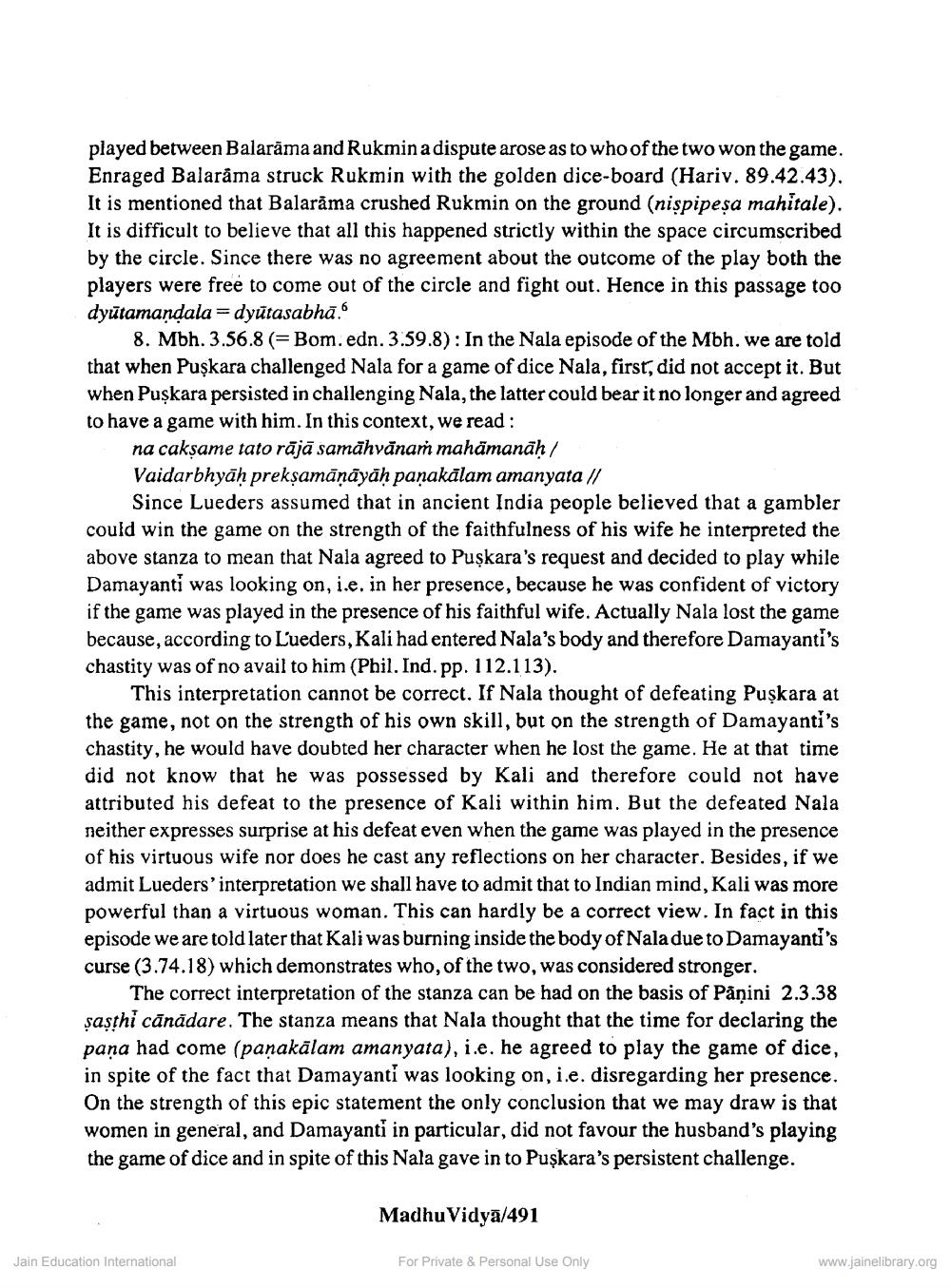________________
played between Balarama and Rukmin a dispute arose as to who of the two won the game. Enraged Balaråma struck Rukmin with the golden dice-board (Hariv. 89.42.43). It is mentioned that Balaråma crushed Rukmin on the ground (nispipesa mahitale). It is difficult to believe that all this happened strictly within the space circumscribed by the circle. Since there was no agreement about the outcome of the play both the players were free to come out of the circle and fight out. Hence in this passage too dyūtamandala= dyūtasabhā.
8. Mbh. 3.56.8 (=Bom. edn. 3.59.8): In the Nala episode of the Mbh. we are told that when Puskara challenged Nala for a game of dice Nala, first, did not accept it. But when Puşkara persisted in challenging Nala, the latter could bear it no longer and agreed to have a game with him. In this context, we read :
na cakşame tato rājā samāhvănaṁ mahāmanāḥ / Vaidarbhyān prekşamāņāyah panakalam amanyata //
Since Lueders assumed that in ancient India people believed that a gambler could win the game on the strength of the faithfulness of his wife he interpreted the above stanza to mean that Nala agreed to Puskara's request and decided to play while Damayanti was looking on, i.e. in her presence, because he was confident of victory if the game was played in the presence of his faithful wife. Actually Nala lost the game because, according to L'ueders, Kali had entered Nala's body and therefore Damayanti's chastity was of no avail to him (Phil. Ind. pp. 112.113).
This interpretation cannot be correct. If Nala thought of defeating Puskara at the game, not on the strength of his own skill, but on the strength of Damayanti's chastity, he would have doubted her character when he lost the game. He at that time did not know that he was possessed by Kali and therefore could not have attributed his defeat to the presence of Kali within him. But the defeated Nala neither expresses surprise at his defeat even when the game was played in the presence of his virtuous wife nor does he cast any reflections on her character. Besides, if we admit Lueders' interpretation we shall have to admit that to Indian mind, Kali was more powerful than a virtuous woman. This can hardly be a correct view. In fact in this episode we are told later that Kali was burning inside the body of Nala due to Damayanti's curse (3.74.18) which demonstrates who, of the two, was considered stronger.
The correct interpretation of the stanza can be had on the basis of Pāņini 2.3.38 şasthi cānădare. The stanza means that Nala thought that the time for declaring the pana had come (panakālam amanyata), i.e. he agreed to play the game of dice, in spite of the fact that Damayanti was looking on, i.e. disregarding her presence. On the strength of this epic statement the only conclusion that we may draw is that women in general, and Damayanti in particular, did not favour the husband's playing the game of dice and in spite of this Nala gave in to Puskara's persistent challenge.
Madhu Vidyā/491
Jain Education International
For Private & Personal Use Only
www.jainelibrary.org




